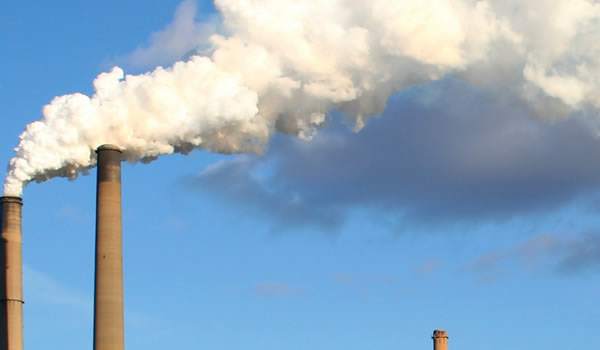Mercury Pollution in Coal: An Example of Why the Election Matters

 The Obama Administration has proposed a new regulation of mercury pollution from power plants. Romney has singled out this regulation as an example of regulation gone wild. Who is right, and why does it matter?
The Obama Administration has proposed a new regulation of mercury pollution from power plants. Romney has singled out this regulation as an example of regulation gone wild. Who is right, and why does it matter?
When coal is burned, mercury contained in the coal is released into the atmosphere, where it can be inhaled or fall into water bodies where it ends up in fish. The EPA rule deals with emissions of mercury from utilities; a separate rule covers industrial boilers, which are used by cement plants, paper mills, and other large facilities. The rule would cut mercury air pollution in half. EPA estimates that the rule will prevent 4,200 - 11,000 premature deaths and 130,000 asthma attacks each year. EPA also indicated that the rule would eliminate 5,700 hospital admissions and emergency room visits; 2,800 cases of chronic bronchitis; and 3.2 million days when people must restrict their activities each year.
Romney has forcefully criticized the regulation. He stresses that “the EPA estimates that the rule will cost $10 billion to reduce mercury pollution by only $6 million.” Instead, he says, the benefits come from making the rule “so expensive that it will bankrupt the coal industry, and then claiming that the elimination of that industry (and its hundreds of thousands of jobs) would have significant benefits.”
The impacts of mercury pollution are hard to determine because of the complicated ways that it enters the environment. It’s also hard to put a dollar sign on some of the harms caused by mercury, such as children losing IQ points. Thus, Romney is right that the benefits of reducing mercury weren’t central to EPA’s cost-benefit analysis. But he is wrong in claiming that the projected benefits were based on eliminating coal.
In fact, EPA estimated that less than half a percent of U.S. power plants (measured by generating capacity) would close. The big gains come from making old plants use up-to-date pollution controls, which will greatly reduce particulate pollution. Microscopic particulates (call PM2.5) have serious health impacts, and the additional pollution equipment will sharply cut their levels. The particulate reduction is the basis for EPA’s estimate that the rule will have annual monetized benefits of $37-90 billion and costs of $9.6 billion.
The split between Obama and Romney over these regulations is mirrored by other participants in the regulatory debate. The American Lung Association hails the rule as “a huge step towards cleaning up the air we depend on and giving us back the air we deserve.” In contrast, the Chamber of Commerce says that the rule is “unprecedented in its size and scope and could literally leave our nation’s economy in the dark.”
Most of us aren’t economists or public health experts, so it’s difficult to form independent judgments. (And even an expert would need to do a lot of research into this particular situation before forming a judgment.) Maybe it comes down to whether you’re inclined to believe the American Lung Association or the Chamber of Commerce. The one thing that’s clear is the regulation matters a lot, and the identity of the next President will determine its fate.


